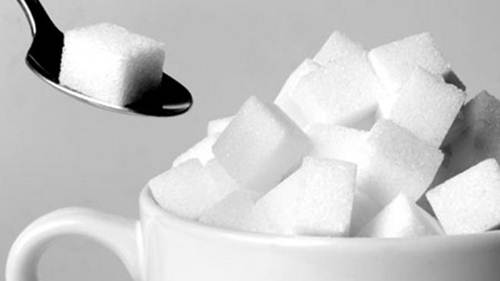
The World Health Organization make statement that our daily sugar intake should be just 5 percent of total calories. It is half of what the agency previously recommend.
According to new draft guidelines, after a review of about 9,000 studies WHO’s expert panel says dropping sugar intake to that level will combat obesity and cativies.
This includes sugars added to foods and those present in honey, syrups and fruit juices but not from naturally in fruits.

WHO’s new guidelines have been published online and the agency is inviting the public to comment via its website until the end of March. Many doctors applauded the U.N agency’s attempt to limit the global sweet tooth.
WHO last revised its sugar guidelines more than a decade ago and recommended sugar should be less than 10 percent of daily calories. The U.S sugar industry was so incensed it lobbied Congress to threaten to withdraw millions of dollars in funding to WHO and a contentious reference to the sugar limit was removed from a global diet strategy.
WHO’s expert group found high sugar consumption is strongly linked to obesity and tooth decay. It noted that heavy people have a higher risk of chronic diseases, responsible for more than 60 percent of global deaths. Dental care costs up to 10 percent of health budgets in Western countries and cause significant problems in the developing world.
WHO warned many of the sugars eaten today are hidden in processed foods, pointing out that one tablespoon of ketchup contains about one teaspoon of sugar.
Source :- Fox News
New draft guideline proposals
WHO’s current recommendation, from 2002, is that sugars should make up less than 10% of total energy intake per day. The new draft guideline also proposes that sugars should be less than 10% of total energy intake per day. It further suggests that a reduction to below 5% of total energy intake per day would have additional benefits. Five per cent of total energy intake is equivalent to around 25 grams (around 6 teaspoons) of sugar per day for an adult of normal Body Mass Index (BMI).
The suggested limits on intake of sugars in the draft guideline apply to all monosaccharides (such as glucose, fructose) and disaccharides (such as sucrose or table sugar) that are added to food by the manufacturer, the cook or the consumer, as well as sugars that are naturally present in honey, syrups, fruit juices and fruit concentrates.
Much of the sugars consumed today are “hidden” in processed foods that are not usually seen as sweets. For example, 1 tablespoon of ketchup contains around 4 grams (around 1 teaspoon) of sugars. A single can of sugar-sweetened soda contains up to 40 grams (around 10 teaspoons) of sugar.
The draft guideline was formulated based on analyses of all published scientific studies on the consumption of sugars and how that relates to excess weight gain and tooth decay in adults and children.
( WHO )
